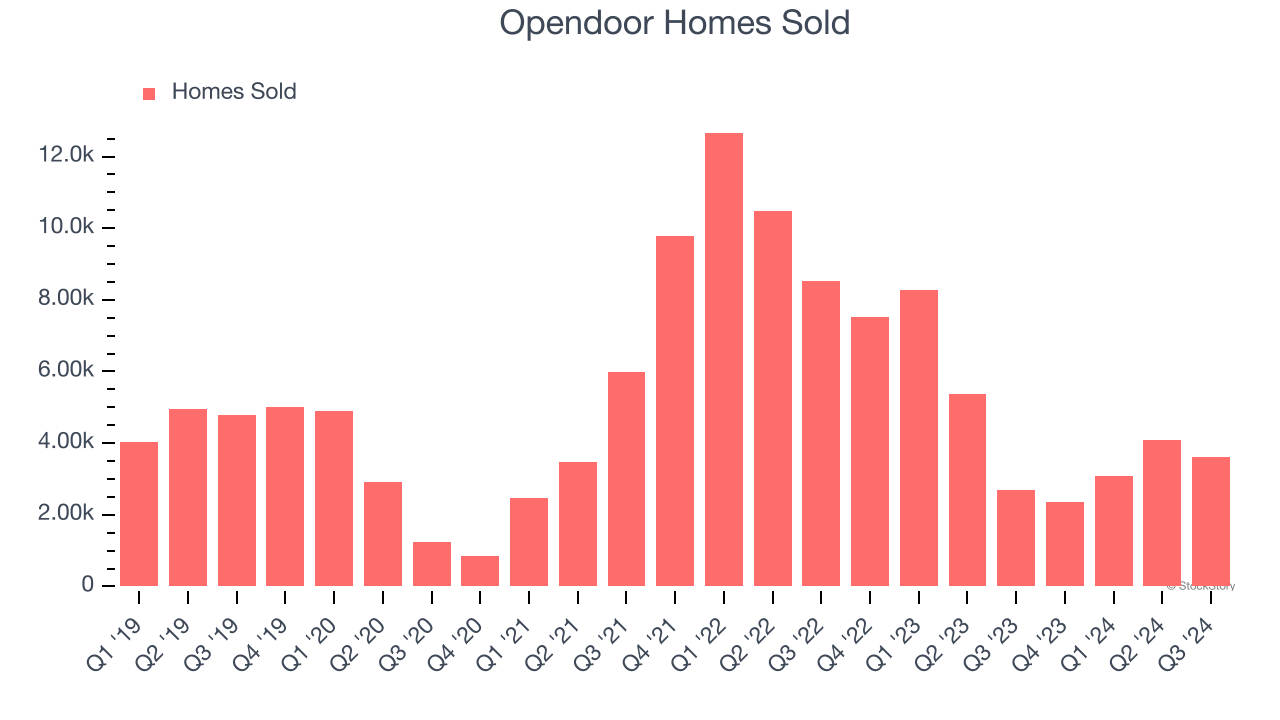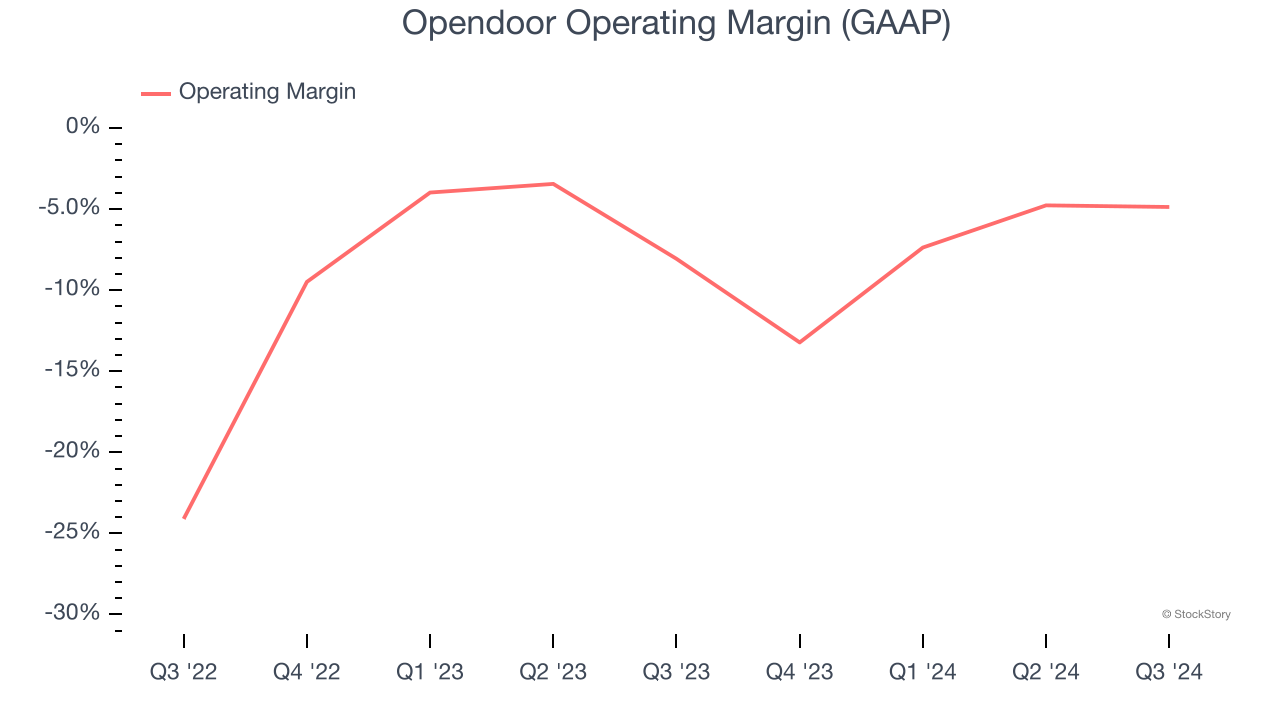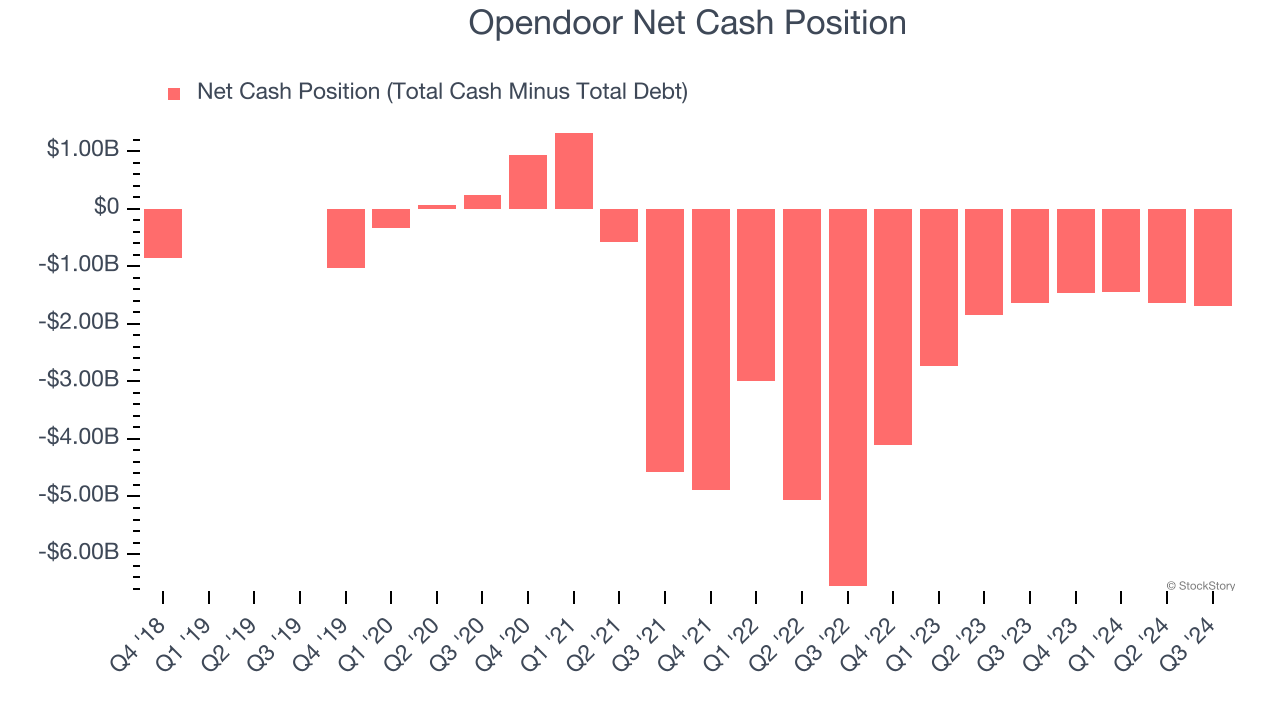
Opendoor has been treading water for the past six months, recording a small loss of 3% while holding steady at $1.91. The stock also fell short of the S&P 500’s 10.3% gain during that period.
Is there a buying opportunity in Opendoor, or does it present a risk to your portfolio? Dive into our full research report to see our analyst team’s opinion, it’s free.We're swiping left on Opendoor for now. Here are three reasons why there are better opportunities than OPEN and a stock we'd rather own.
Why Is Opendoor Not Exciting?
Founded by real estate guru Eric Wu, Opendoor (NASDAQ:OPEN) offers a technology-driven, convenient, and streamlined process to buy and sell homes.
1. Decline in Homes Sold Points to Weak Demand
Revenue growth can be broken down into changes in price and volume (for companies like Opendoor, our preferred volume metric is homes sold). While both are important, the latter is the most critical to analyze because prices have a ceiling.
Opendoor’s homes sold came in at 3,615 in the latest quarter, and over the last two years, averaged 37% year-on-year declines. This performance was underwhelming and implies there may be increasing competition or market saturation. It also suggests Opendoor might have to lower prices or invest in product improvements to grow, factors that can hinder near-term profitability. 
2. Operating Losses Sound the Alarms
Operating margin is an important measure of profitability as it shows the portion of revenue left after accounting for all core expenses–everything from the cost of goods sold to advertising and wages. It’s also useful for comparing profitability across companies with different levels of debt and tax rates because it excludes interest and taxes.
Opendoor’s operating margin might have seen some fluctuations over the last 12 months but has generally stayed the same, averaging negative 6.4% over the last two years. Unprofitable consumer discretionary companies that fail to improve their losses or grow sales rapidly deserve extra scrutiny. For the time being, it’s unclear if Opendoor’s business model is sustainable.

3. Short Cash Runway Exposes Shareholders to Potential Dilution
As long-term investors, the risk we care about most is the permanent loss of capital, which can happen when a company goes bankrupt or raises money from a disadvantaged position. This is separate from short-term stock price volatility, something we are much less bothered by.
Opendoor burned through $1.09 billion of cash over the last year, and its $2.53 billion of debt exceeds the $837 million of cash on its balance sheet. This is a deal breaker for us because indebted loss-making companies spell trouble.

Unless the Opendoor’s fundamentals change quickly, it might find itself in a position where it must raise capital from investors to continue operating. Whether that would be favorable is unclear because dilution is a headwind for shareholder returns.
We remain cautious of Opendoor until it generates consistent free cash flow or any of its announced financing plans materialize on its balance sheet.
Final Judgment
Opendoor’s business quality ultimately falls short of our standards. With its shares underperforming the market lately, the stock trades at $1.91 per share (or 0.2× forward price-to-sales). The market typically values companies like Opendoor based on their anticipated profits for the next 12 months, but it expects the business to lose money. We also think the upside isn’t great compared to the potential downside here - there are more exciting stocks to buy. We’d recommend looking at KLA Corporation, a picks and shovels play for semiconductor manufacturing.
Stocks We Would Buy Instead of Opendoor
The Trump trade may have passed, but rates are still dropping and inflation is still cooling. Opportunities are ripe for those ready to act - and we’re here to help you pick them.
Get started by checking out our Top 5 Strong Momentum Stocks for this week. This is a curated list of our High Quality stocks that have generated a market-beating return of 175% over the last five years.
Stocks that made our list in 2019 include now familiar names such as Nvidia (+2,691% between September 2019 and September 2024) as well as under-the-radar businesses like United Rentals (+550% five-year return). Find your next big winner with StockStory today for free.














